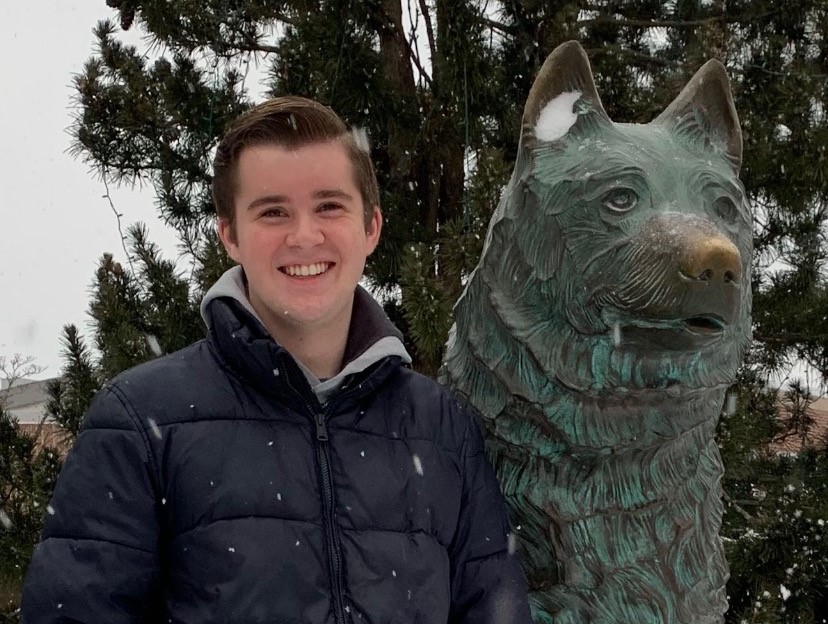Each year, UConn’s Office of Undergraduate Research provides Summer Undergraduate Research Fund (SURF) awards to support full-time undergraduate students in summer research or creative projects – an initiative that continues this year, despite the challenges presented by the COVID-19 pandemic.
SURF awards are available to students in all majors at all UConn campuses. A faculty committee representing various schools and colleges reviews the students’ project proposals, and SURF award recipients are chosen through a competitive process. Each SURF award winner is supervised by a UConn faculty member.
This summer, UConn Today will once again take a look at various 2021 SURF scholars and their work.
Name: Matthew Phillips
Hometown: Broad Brook
Year: Rising Senior
Major: Speech, Language, and Hearing Sciences & Psychological Sciences
Summer research project: Phillips is exploring the temporal processing deficit in people who stutter with his faculty mentor Emily Myers, an associate professor in the Department of Psychological Sciences in the College of Liberal Arts and Sciences.
Can you tell us about the research you are doing this summer?
Something that we know is, that people who stutter obviously produce speech differently, and it takes them a bit longer to say what they want to say, and sometimes they may repeat sounds and prolong sounds. I am investigating a new line of voice interaction and how people who stutter process and perceive speech. I am looking at if they do it in a different way from people who don’t stutter. We really don’t know a whole lot about that side of things.
How did you become interested in this type of research?
I’ve seen a lot of speech language pathologists because I stutter. One of them I see also stutters and I realized that this is a job I might like and could do. I talked to a couple of them who stutter, and they said they like the job and felt like they connect to their clients effectively because they also have a communication disorder. They feel like they connect with them on their level, and that it makes them a better clinician.
I came to UConn and joined Dr. Myers’ lab, which is actually a speech perception lab. While that’s not what I thought I wanted to do originally, I found the whole voice research process to be quite interesting. Now, I am able to combine what I have done in the lab with the stuttering side of things into this project.
How does research work differ from that done in the traditional classroom?
I found that sometimes with classroom work, it’s not always apparent how the material might be applicable and it’s not clear what went into discerning the facts. Sometimes, the classroom side of things can be hands-off, but with research, you need to think a bit more deeply, because you need to think of a question that probably no one knows the answer to, and try to figure out the best way to uncover the answer to it.
What will you do with the research you are doing this summer?
The research that I am doing this summer is actually stage one of a two-part experiment. Stage one will have people listening to different types of sounds, and they will need to make a conscious decision about those sounds. The results of stage one will feed into stage two, which I will begin in the fall. That part will be using EEG to track the activity in someone’s brain while they listen to those same sounds.
Now, why would you want to do the two-stage approach with someone needing to make a conscious decisions on these sounds and then follow up with what’s happening in the client’s brain? Sometimes the differences happening inside someone’s brain can be small enough that they wouldn’t show up in a behavioral response, but by using an EEG measure we can zoom in on the subtle differences.
What are your future plans?
This upcoming fall, I am going to be applying to graduate schools, for a combined masters’ and Ph.D. program so I can continue to do voice research, both the basic science and the clinical components of stuttering.



